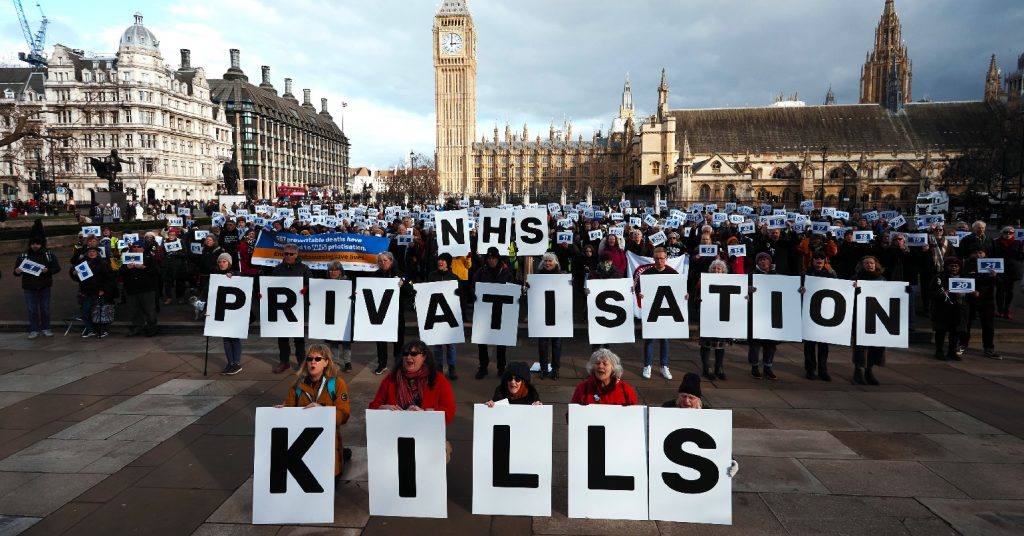Fighting for the Public University
Luke Martell
Jérémie Bédard-Wien from the Quebec students’ union CLASSE has been on tour in England, telling his story about the movement at home against fees and for public education. The Quebec mobilisation has been large, radical and sustained. It’s combined students from the bottom up and reached out to unions. It was confronted by aggressive police action and legal attacks on the right to protest. Chilean student activists have also been in Britain, arguing for a popular struggle against the privatisation of universities. There are lessons for the UK.
What we face in England, and potentially beyond, is the systematic and deliberate mass privatisation of higher education. Public universities are being transformed into profit-making operations. This is not just in support services, but also teaching and the content of courses. The case for university privatisation is not supported by evidence. It’s an act of faith, in private profit over the public good.
The basis for new private providers is in train. There’s large-scale outsourcing at places like Sussex University. Unions and the left need to be up to speed with the way the substance of higher education is being turned upside down. Union branches should be willing and prepared to fight back. Trying to get a good deal locally in the new privatised university system would smooth the way for the national destruction of public education.
The government has removed the state contribution to students’ tuition fees, so public universities can no longer provide a cheaper education than the private sector. Higher education minister David Willetts has said this is so private providers can get in on a level playing field.
Education geared around student fees, without cross-subsidy from money-spinning areas, has fundamental implications. At my university, business, management and economics is being massively expanded. Support from its earnings, for community and adult education, is not being allowed. So the latter has been closed down.
The definition of what you need to be to become a university is being loosened. You used to need 4000 students to qualify. This will go down to 1000. Ironically, outsourcing Vice-chancellors don’t like this. It makes it easier for the private sector to step in and out-compete their institutions.
Degree awarding powers are to be opened to non-teaching organisations, like the publisher Pearson Education. Their mission is to do one thing. That isn’t education for the public good. It’s to make a profit. Universities’ VAT-exemption is to be extended to outsourced operations and for-profit providers so the private sector has a cheaper route to taking over.
High fee chargers will take middle class students more inclined to live with large loans. The claim that poor students aren’t deterred by high fees is based on shaky grounds. Low fees universities will become working class institutions. These will find it difficult to cover their costs so will close. A road in for working class students will be blocked. Those who won’t oppose this acceleration of inequality are complicit with it.
The Labour Party have said they’ll reduce the top rate of fees from £9000 to £6000. That’s better. But it won’t reverse the privatisation process. Labour kicked it all off with the introduction of student paid fees. They’ve pushed ahead the privatisation and marketisation of health, and deregulation of labour and finance. A reversal of education privatisation won’t come from this quarter. The future of education will have to be fought for by protest and the unions.
The University and College Union and UNISON have anti-privatisation policies. If you’re a member of one of these unions and you say you want to fight privatisation, you’re following your union’s policy. And groups beyond the unions have a stake and the right to be involved. They shouldn’t need permission to defend from the bottom-up the places they are part of.
Unless we act against education privatisation it will set in and be difficult to reverse. It’s unrolling nationally, and local responses need to operate in a way which engages with this. We shouldn’t be negotiating privatisation. We should be turning it back.
Of course, unions have to use consultations. But for managements these are just about going through the motions. So unions must ally with anti-privatisation campaigns and support them. And if unions don’t have a clear strategy to fight privatisation their members may stay away or look elsewhere to organise.
The campaign side needs to include, a la Quebec and Chile, the student movement and grassroots. Unions should endorse such partners, and not oppose direct action if that’s the way it goes. The grassroots aren’t their enemies. They’re their supporters. And when activists and students campaign against privatisation they’re not being divisive. They’re building the strength of the movement.
We face the fast and radical reconstruction of the university system from one based on the public good to another whose pay, pensions and intellectual content will be geared to private profit. It can’t be underestimated how much local actors need to wage a national battle against this major and difficult to reverse nation-wide transformation. To do local deals will accelerate the process and assist the transition to mass privatisation.
Education privatisation is about support services, but also academia, privatising knowledge and commercialising what we teach new generations. We need not to manage privatisation but to stop it. In how we do that there are lessons to be learned from Quebec and Chile.




Leave a Reply